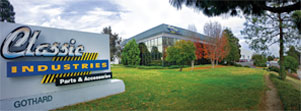 Few cars command respect like the 1965–1973 Ford Mustang. Whether it’s a ’65 fastback 289, a Boss 302, a rare and racy Shelby Mustang, or a Mach 1 big block, these icons of American muscle never fail to turn heads.
Few cars command respect like the 1965–1973 Ford Mustang. Whether it’s a ’65 fastback 289, a Boss 302, a rare and racy Shelby Mustang, or a Mach 1 big block, these icons of American muscle never fail to turn heads.
But once you’ve tracked down your dream project—maybe a dusty barn find or a half-finished Craigslist special—you’re faced with one big decision:
Do you restore it to factory specs, or build a modernized restomod beast?
Video: Jay Leno's Garage - 1964.5 Mustang K-Code Convertible
What Is a Mustang Restoration?

Above and below: The Lead photo is of a 1967 Ford Mustang GT500 'Eleanor' clone restomod from the popular Nicholas Cage and Angelina Jolie Movie 'Gone in 60 seconds.' The 1965 Ford Mustang K-code V8 engine equipped convertible with four-speed manual transmission sports the following characteristics (photos courtesy of Mecum Auctions):
- Two owner
- Restoration completed in 2020
- K Code 289 CI HiPo V-8 engine
- 4-speed manual transmission
- Phoenician Yellow exterior
- Black convertible top
- Black bucket seat interior
- Rally-Pac gauges
- Includes original documentation including window sticker and owner's manual


Bringing It Back to Factory Fresh
A restoration is all about authenticity. The goal is to return your Mustang to exactly how it left the factory—right down to the date-coded glass, Autolite battery topper, and red oxide primer on the floor pans.

Above and below: 1970 Ford Mustang Boss 429 - Grabber Blue over black vinyl upholstery (photos courtesy of Mecum Auctions):
- KK no. 2100
- 1 of 499 produced for 1970
- Comprehensive restoration with approximately 455 miles since completion
- Correct factory markings
- Desirable color combination of Grabber Blue paint and White decor bucket seats
- Boss 429 CI 4V V-8 engine
- Rated at 375 HP
- Close ratio 4-speed manual transmission
- 3.91 Traction-Lok axle ratio
- Power steering
- Power brakes with front discs




You’re not customizing; you’re preserving history. Every part, every finish, and every bolt should be true to the original Ford spec.
OEM Parts and Original Specs
True restorers live for OEM, NOS, and accurate reproduction parts. The carbureted small block stays, the drum brakes get rebuilt, and the AM radio crackles with vintage charm.
If you’re chasing MCA concours gold or aiming to impress the purists at your next car show, restoration is your route.
Driving Experience: A Time Capsule on Wheels

Above: 1965 and 1966 Shelby GT350 Race specification Mustangs at the Rolex Monterey Motorsports Reunion Laguna Seca Raceway vintage racing (photo courtesy of the humble scribe)
Driving a restored classic Mustang is like stepping back into 1967. The steering is loose, the brakes take muscle, and the suspension wallows a bit—but that’s the magic. You feel the era in every vibration and every burble from the exhaust.
Value: The Collector’s Gold Standard

Above: A 1969 Boss 302 Mustang road racing spec enjoying what she was built to do - racing, is in fact vintage racing and being pursued by a 1968 Camaro Z28 and a 1970 Boss 302 Mustang at Laguna Seca Raceway (photo courtesy of DBS).
In the collector world, originality equals credibility. A numbers-matching restoration, especially for models like the Boss 429, GT350, or Mach 1, can fetch serious money. But tamper with originality—say, a modern engine swap—and purists will mark you down.
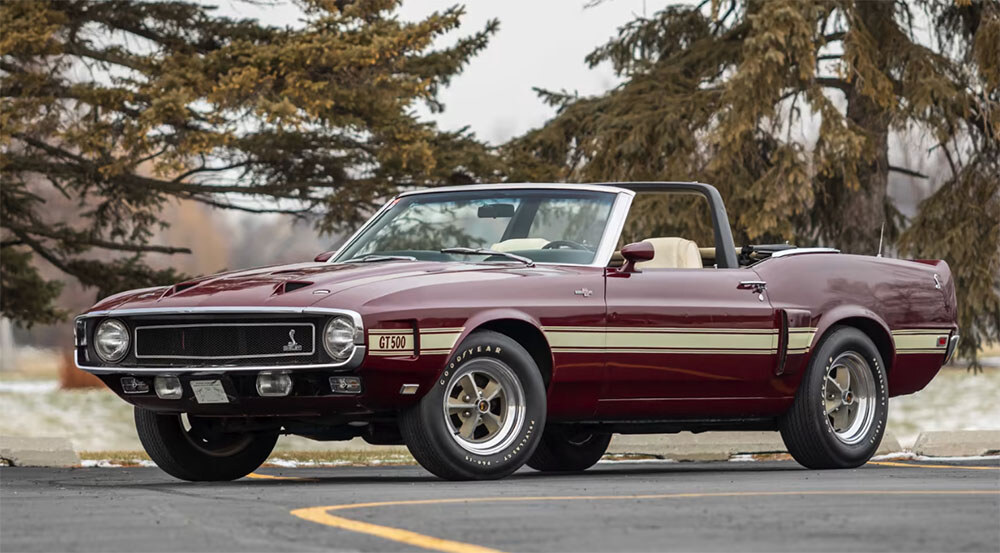
Above and below: 1969 Shelby GT500 Mustang convertible (photos courtesy of Mecum Auctions):
- Highly original unrestored condition
- Two owner car--in the care of second owner since 1987
- Matching numbers R-code 428 CI Cobra Jet V-8 engine
- 4-speed manual transmission
- Original Royal Maroon exterior
- Original convertible top and boot cover
- White interior
- Two build sheets
- Marti Report
- Service records
- Invoice
- 2 warranty cards
- Listed in the Shelby Registry
- Power steering
- Power brakes with front discs
- Ram Air
- 5-spoke Shelby wheels

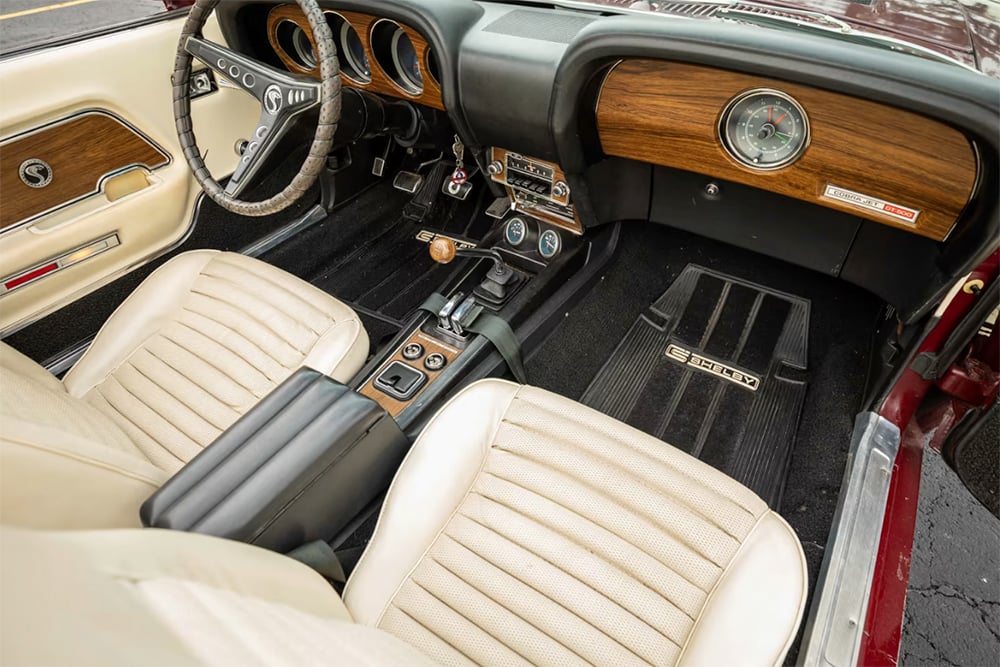

Video: Jay Leno's Garage - 1965 Mustang 'Vicious' Fastback Restomod w/ 1,000 Horsepower
What Is a Mustang Restomod?

Above and below: 1969 Ford Mustang restomod fastback (photos courtesy of Mecum Auctions):
- Comprehensive build
- 5.0 Coyote V-8 engine
- Tremec 6-speed manual transmission
- Hydraulic clutch
- Aluminum radiator with electric fan
- Serpentine belt drive
- Complete stainless steel exhaust system
- Truetrac limited slip differential with 3.70 gear ratio
- Custom Axalta Acapulco Blue paint
- Schwartz Performance G-machine full chassis
- Power steering
- ABS 4-wheel power disc brakes
- 13-inch Baer drilled and slotted rotors
- Billet Specialties WEDGE wheels
- Michelin Pilot Sport 4S 255/35ZR20 front and 305/30 ZR20 rear tires
- Modified interior with woodgrain accents
- Dakota Digital RTX gauges
- Vintage Air
- Alpine stereo
- Power door locks with alarm


Classic Looks, Modern Performance
A restomod (restoration + modification) keeps the vintage vibe but adds modern tech and performance. Think of it as a 1969 Mustang Fastback with the heart of a 2025 GT.
The body stays classic, but under the hood and beneath the sheet metal, everything gets an upgrade.
Performance Upgrades and Powertrain Swaps

Above and below: 1968 Ford Mustang fastback X.S. 302 restomod (photos courtesy of Mecum Auctions):
- Comprehensive build by Robert Brawn of Gilbert, South Carolina
- 2015 Ford 5.0L Aluminator XS engine
- Tremec Magnum XL 6-speed transmission
- 8.8 rear end with 9-inch Ford axles and 3.73 ratio gears
- Wilwood disc brakes
- Griggs Racing suspension
- Shock towers have been removed
- 1967 Shelby Mustang fiberglass body parts
- Custom interior with recovered Recaro seats
- Rollcage with removable sidebars
- Mustangs to Fear dash and roof panel
- Classic Instruments gauges with custom colors
- Vintage Air
- Sony stereo
- Fire suppression system
- Nardi flat-bottom steering wheel
- Storage under the rear compartment
- J.W. Speaker LED headlights and center lights
- Gulf racing livery
- Kindig-It Design recessed door handles
- Hand-built front wheel flares
- CCW 18x9 and 18x12 wheels



Restomods often get disc brakes all around, rack-and-pinion steering, coilover suspension, and—of course—a serious power upgrade. They're also apt to receive some hi-tech and way cool LED headlights, taillights, and interior lights like the ones blazing a brilliant path ahead in bright daylight just above. A Coyote 5.0L swap is the holy grail of restomod powerplants, bringing fuel injection, reliability, and over 400 horses to your classic.

Other common mods include:
- Modern TREMEC 5-speed or 6-speed transmissions
- EFI conversions to replace carbs
- Aluminum radiators and electric fans
- Custom headers and exhaust systems
The result? A car that looks 50 years old but drives like it rolled off a modern assembly line.

Interior and Comfort Mods
Restomods blend comfort with performance. Expect upgrades like:
- Recaro or TMI Sport seats
- Custom gauge clusters
- Bluetooth audio and hidden speakers
- Vintage Air A/C systems
- LED lighting and push-button ignition
It’s classic style without the compromises.

Above and below: 1966 Ford Mustang fastback restomod (photos courtesy of Mecum Auctions):
- Mostly original sheet metal with exception of hood and front rock guard
- New base/clear paint in original Red
- Original glass and stainless trim
- Supercharged 5.8L Cobra Jet engine with 10% overdrive
- Dual pass water-to-air intercooler, electric pump driven
- Billet oil pump and cam chain drive
- ARP fasteners
- Aeromotive fuel pump, regulator and braided lines
- Headers and 3 inch dual exhaust
- Union Gear Transzilla close ratio 6-speed transmission
- Hurst shifter
- Dual disc clutch
- Aluminum flywheel and driveshaft
- Lakewood explosion-proof bellhousing
- A-frame front control arms
- Adjustable front and rear coilovers
- 1 1/2 inch sway bar
- Wilwood 4-wheel disc brakes with 14 inch rotors and 4-piston calipers
- Wilwood master cylinder, braided lines
- Four front-to-rear frame braces with cross links
- 9 inch aluminum center section with 3.91 gears
- Eaton locking differential and 36-spline axles
- 4-link rear suspension
- NHRA and SCCA compliant 3 inch wheel studs




Driving Experience: Built to Be Driven
Unlike a pure restoration, a restomod isn’t meant to sit under a car cover. It’s made to be driven hard and often. With better handling, braking, and reliability, these builds can easily handle long road trips or weekend track days.
Value: The Modern Collector’s Market
The restomod market is exploding. A well-built Coyote-swapped ’69 Fastback or Pro Touring ’67 GT can command six figures at auctions like Barrett-Jackson. While they may not have historical authenticity, they offer practicality and performance that modern buyers crave.
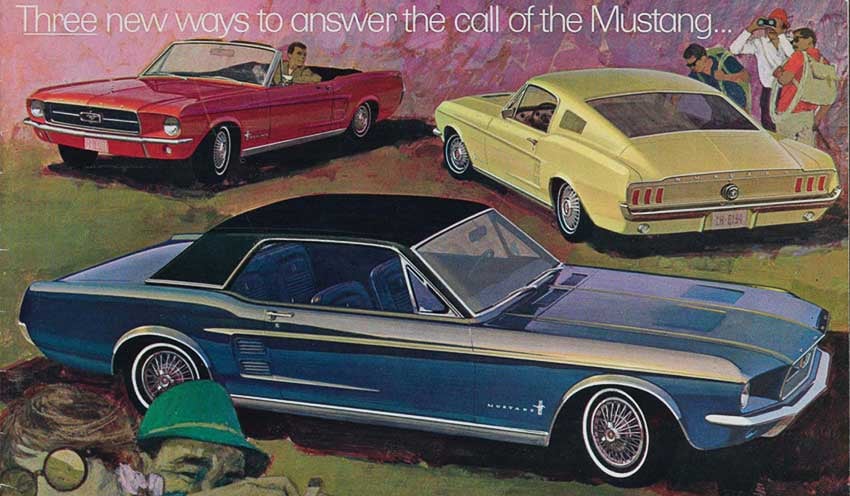
Above: Cover of 1967 Ford Mustang sales brochure (photo courtesy of Ford Heritage Vault)
Restoration vs. Restomod: Key Differences
|
Feature |
Restoration |
Restomod |
|
Goal |
Factory accuracy |
Modernized performance |
|
Powertrain |
Original or period-correct |
Coyote, crate, or EFI V8 |
|
Parts |
OEM/NOS/reproduction |
Mix of aftermarket and performance |
|
Suspension & Brakes |
Stock setup |
Upgraded for handling & safety |
|
Interior |
Period-correct |
Custom, comfort-focused |
|
Driving Feel |
Vintage authenticity |
Modern precision |
|
Value Focus |
Collector originality |
Custom appeal & usability |
Above: 1967 Ruffian Mustang fastback restomod gobbling up the tarmac with ease (photo courtesy of AutotopiaLA)
Which Is Right for You?
Ask yourself a few questions:
- Do you want a piece of history, or a car you can drive anywhere?
- Are you building to show or to go?
- Do you get satisfaction from factory-correct details—or from modern horsepower and performance?

Above: 1969 Boss 429 Mustang restored to the nines or 10s (photo courtesy of Mecum Auctions)
If you live for authenticity, restore it.
If you want to drive it like it’s brand new, restomod it.

Above: 1965 Mustang twin-turbo V8 1,000 horsepower powered "Drift King" restomod going through the gears (photo courtesy of AutotopiaLA screen grab from video)
There’s no wrong answer—just different philosophies of passion.
Final Thoughts: Every Mustang Has a Soul
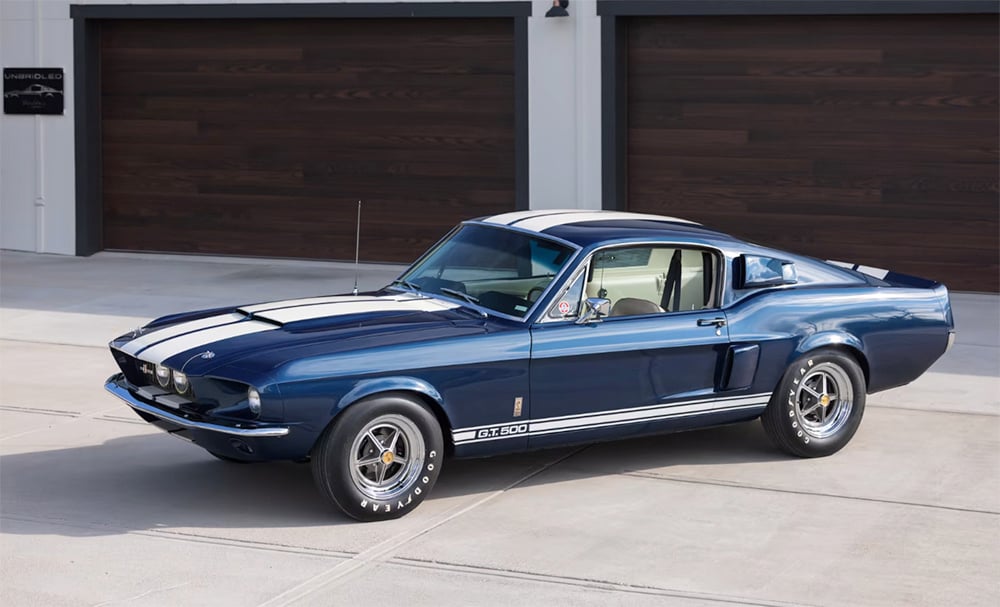
Above: 1967 Shelby GT500 Mustang fastback restored to perfection (courtesy of Mecum Auctions)
Whether you’re chasing concours trophies or cornering G-forces, both restorations and restomods celebrate what makes the Mustang legendary: its freedom, individuality, and mechanical spirit.

Above: 1967 Ford Mustang fastback Shelby clone restomod (photo courtesy of Mecum Auctions)
From the rumble of a carbureted 289 to the snarl of a modern Coyote, the sound of a classic Mustang will always stir the soul. And no matter your path—purist or performance enthusiast—you’re keeping the legend alive.
Ford Mustang & Shelby Parts @ Classic Industries
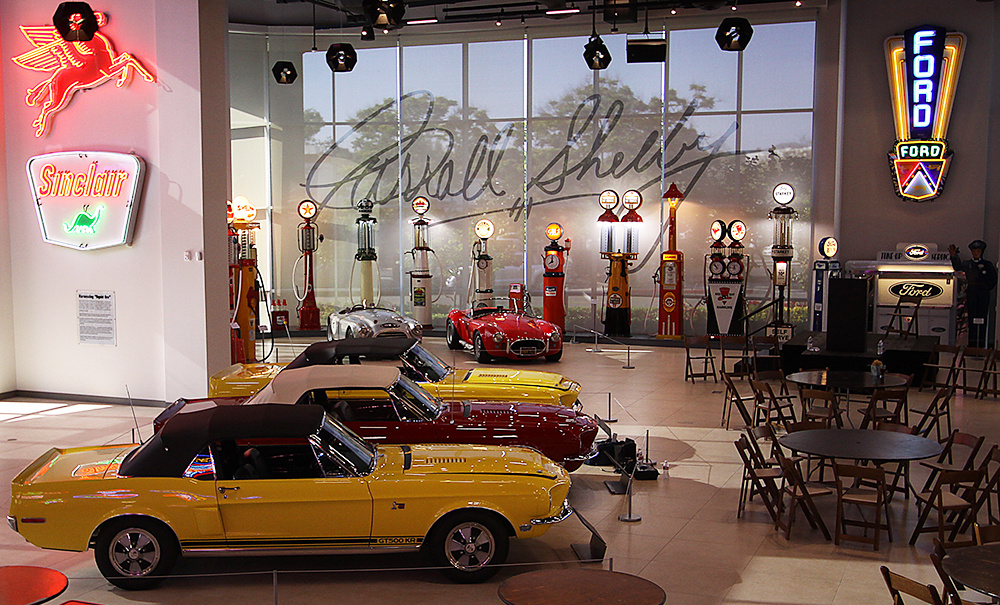
Many of our great customers aren't aware that we sell Ford Mustang and Shelby parts, in addition to other Ford models components and accessories at Classic Industries. In addition, you can enhance your quest to obtain Mustang and Shelby components from the Classic Industries Mustang Parts & Accessories Catalog. By clicking the button just below, you'll be asked to fill in some shipping information. You can download a PDF version and/or have a printed catalog mailed to you. Happy hunting, shopping, building, driving, and enjoying your Ford vehicles!
Classic Industries' Ford Mustang History Articles
We have a growing library of Ford Mustang history articles available for your entertainment, education, and inspiration. Have fun in the CI library:
- Ford Mustang History: Creating the First Pony Car
- 4th Gen SN95 Mustang History: Development & "Fox 4" Concept Cars
- Fox Body Mustang: Development, Concepts, and 1979-1993 Year Changes
- 1964-1973 Ford Mustang VIN Decoder & Pre-Purchase Buyer's Guide
- 1964.5 (Early 1965) Mustang VIN & Data Plate Decoder
- The Wild Horse Galloped Away - 1969 Shelby GT350 Mustang Fastback
- 1965-1970 Shelby Mustang Paint Colors, Fun Facts, & Specifications
- Visiting the Segerstrom Shelby Event Center - Mr. Shelby is Smiling!









